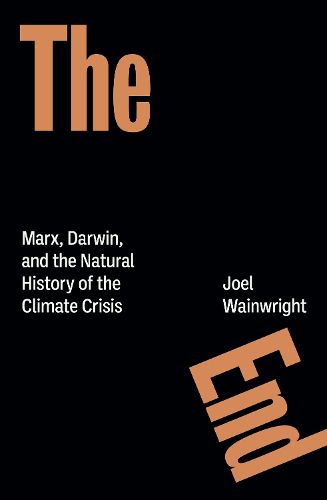Readings Newsletter
Become a Readings Member to make your shopping experience even easier.
Sign in or sign up for free!
You’re not far away from qualifying for FREE standard shipping within Australia
You’ve qualified for FREE standard shipping within Australia
The cart is loading…






Karl Marx wrote the most important critique of capitalism, Capital, in London during the 1860s, at the very moment that Charles Darwin's On the Origin of Species had shattered humanity's conception of ourselves. In this path-breaking study, Joel Wainwright demonstrates that Capital was deeply influenced by Marx's reading Darwin's Origin of Species. Marx's thinking about history and nature changed, generating his distinctive ecological critique of capitalism as a social formation. This is why Marx called Capital a study of natural history and the book concludes, of all things, by proposing a new scientific law of human population. Prospect of an End is not only a study in revolutionary 19th century thought. Wainwright applies Marx's natural historical approach to some of the great questions of our time: How did capitalism emerge? When did the Anthropocene begin? And how might we confront the planetary climate crisis?
$9.00 standard shipping within Australia
FREE standard shipping within Australia for orders over $100.00
Express & International shipping calculated at checkout
Stock availability can be subject to change without notice. We recommend calling the shop or contacting our online team to check availability of low stock items. Please see our Shopping Online page for more details.
Karl Marx wrote the most important critique of capitalism, Capital, in London during the 1860s, at the very moment that Charles Darwin's On the Origin of Species had shattered humanity's conception of ourselves. In this path-breaking study, Joel Wainwright demonstrates that Capital was deeply influenced by Marx's reading Darwin's Origin of Species. Marx's thinking about history and nature changed, generating his distinctive ecological critique of capitalism as a social formation. This is why Marx called Capital a study of natural history and the book concludes, of all things, by proposing a new scientific law of human population. Prospect of an End is not only a study in revolutionary 19th century thought. Wainwright applies Marx's natural historical approach to some of the great questions of our time: How did capitalism emerge? When did the Anthropocene begin? And how might we confront the planetary climate crisis?